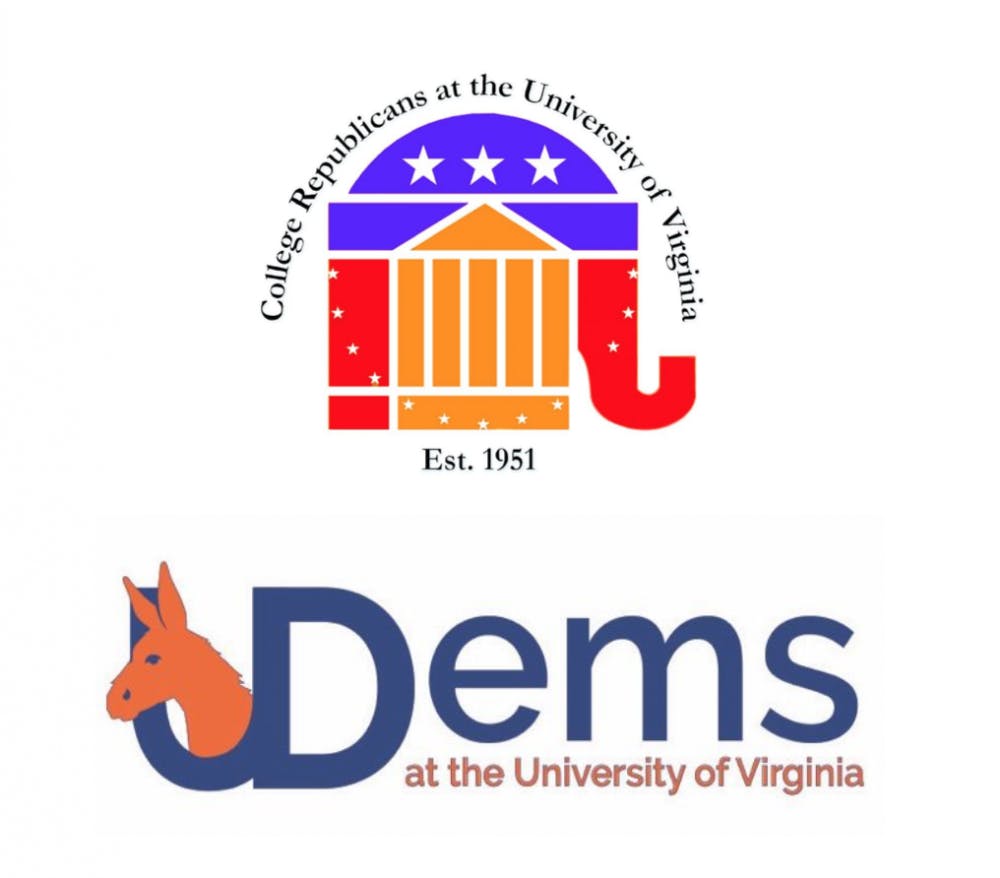The College Republicans and University Democrats released a joint-statement Feb. 1, criticizing President Trump’s immigration order. Among many other points, the statement argues that “regardless of political ideology, protecting the values of the University and the nation, as well as our students and their access to a world-class education at the University, must be a priority.” As far as I can tell, this is the first joint-statement by the two organizations in recent history. Neither organization had external pressure to release a unified statement, and it is significant that they did. I commend this bipartisan effort and encourage the two groups to look for ways to work more closely in the future.
Part of the reason the joint-statement is meaningful is that University Democrats and College Republicans had many reasons not to publish it together. Being that the country is hyper partisan right now, attempts to reach across the aisle often attracts more criticism than praise. Republican lawmakers are facing intense pressure to get in line behind President Trump’s agenda and many who break from the President are criticized, sometimes by the President himself. Democratic lawmakers are also facing considerable pressure from their base to not compromise with Republicans. Senate Democrats vowing to filibuster Trump’s Supreme Court nominee is, in part, a result of the pressure to not work with Republicans.
University Democrats and College Republicans face some of the same pressures that national lawmakers do. For example, the top comment on the College Republicans joint-statement Facebook post is a harsh criticism of the letter by a user who identifies himself as a College Republican. Other students are calling for an all-out resistance to Trump, making it hard for University Democrats to find middle ground. It is much easier to just play to one’s ideological base rather than reach across the aisle, even at the University level.
However, University-level politics gives students a certain flexibility that politicians don’t have. The College Republicans don’t represent the views of a large electoral district — they are only accountable to less than 150 voting members. This is not to say that electoral strength does not matter at the University level, as the reversal of the College Republicans’ vote to endorse Trump proved. But as that vote also proves, both organizations have a unique character that gives them more space for cooperation.
I think the main pillar supporting the relationship between University Democrats and College Republicans is that we are all students. As obvious as that is, it bears noting. It is very hard to vilify or condemn the other side when that person also lives in your hall, plays intramural sports with you or is in one of your classes. There is so much talk about reaching outside our political bubbles, even I have indulged in that line of argument before, but there’s so much we could do to engage in conversations with others on Grounds.
There are concrete ways that University Democrats and College Republicans can strengthen their relationship and cooperation. This includes inviting each other to events that they are hosting, like when the College Republicans invited University Democrats to come hear a Virginia Republican gubernatorial candidate Ed Gillespie speak. There should also be an effort to try to co-host more events where both sides can have a dialogue — something as simple as a discussion between the two organizations curated by a professor could help. With the governor's race this year, both organizations could build events focused on the different candidates. More than anything else I would encourage University Democrats and College Republicans to partner in a get-out-the-vote effort. Both these organizations should also look for more points of unity and strive to highlight them with future joint-statements.
A stronger relationship between University Democrats and College Republicans will only benefit the University. No one is better off yelling into their echo chamber. Even if a discussion doesn’t change anyone’s mind, just the act of having your ideas challenged strengthens your understanding of them. I don’t expect University Democrats and College Republicans to agree on most issues, I actually expect them to nearly always disagree. But through this respectful disagreement I hope people understand their own views and the views of others a little better.
Cooperation is a goal that both University Democrats and College Republicans share. Alison Hiestand, Chair of the College Republicans, stated that “we are definitely interested in pursuing increased cooperation with the UDems” and she hopes they can “provide even a small example of the hope and importance of bipartisanship on Grounds.” Virginia Chambers, the Communications Coordinator for University Democrats, similarly stated that “we are definitely interested in pursuing increased cooperation with the College Republicans.” As great as it is that both of these organizations desire to cooperate, desire means nothing without action.
Bobby Doyle is an Opinion columnist for the Cavalier Daily. He can be reached at b.doyle@cavalierdaily.com.







